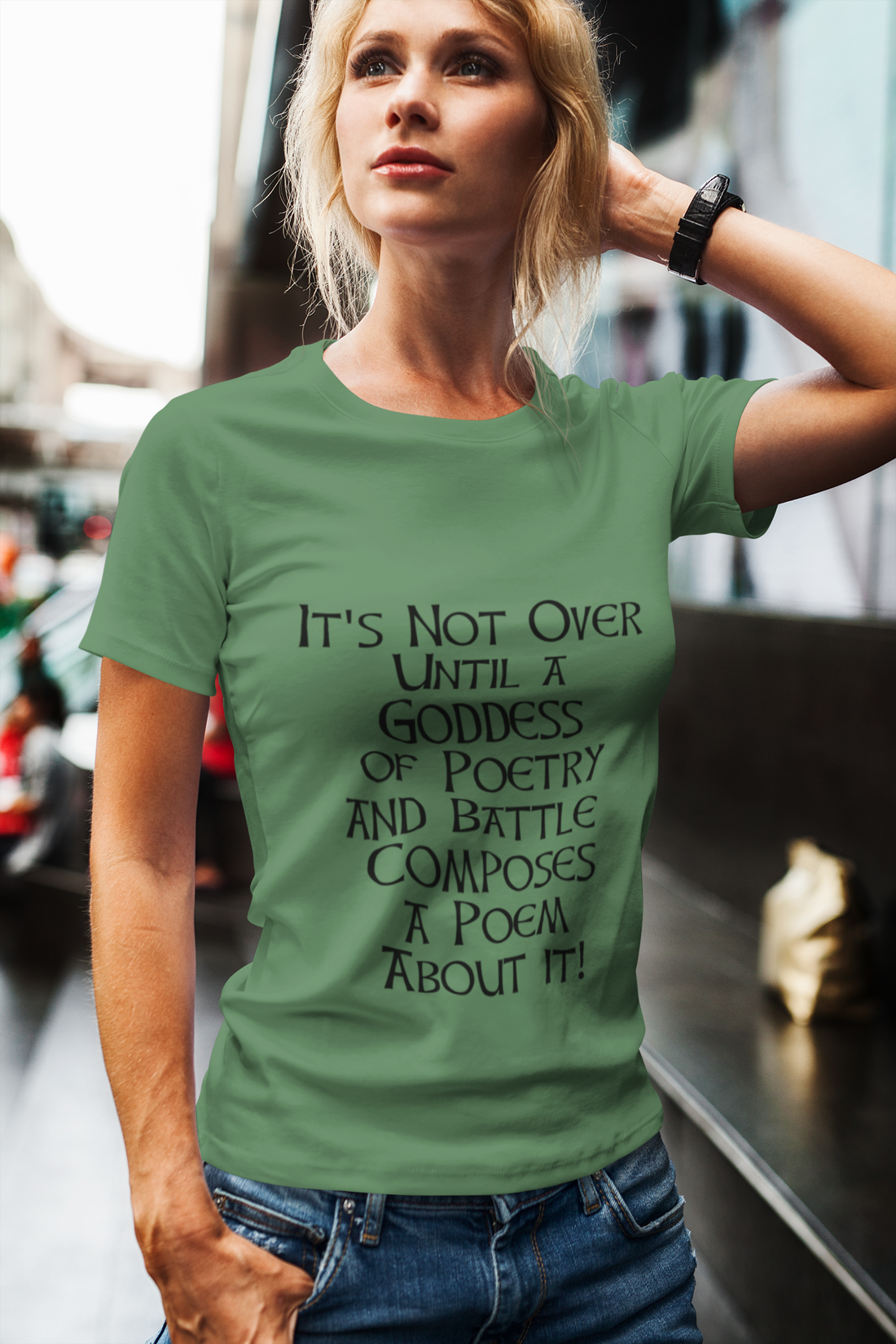Peace up to heaven,
Heaven down to earth, Earth under heaven,
Strength in everyone,...
In the ancient past of Ireland the art of crafting poetry was highly regarded as one of the greatest skills. There was not a Hero who could call themselves such if they could not recite certain stanzas from memory as well as display the mental agility to create their own words right there upon the spot. Though of all of the famous poets and poems of Ireland's past there can be none that compare to the Morrigan.
During the times of the Tuatha Dé Danann there came a point of great conflict. The arrival of Lugh as their king signaled that times long foretold of in prophesy were coming to pass. Soothsayers and prophets had foreseen the doom of the Fomorian warlord Balor, known as 'the Bale Eye', by the deeds of a child born of his only daughter, Ethne. Some stories say that it was by trickery that Cian son of Dian Cecht found the Fomorian woman locked away from men and that their union was one of forbidden romance. Other stores say that there was a wedded union to foster peace between the two peoples. Either way, the child of thier union was Lugh, he of great skill and so the words of the prophets were proved true. There was to be no peace and with the failed rule of Bres came the Fomorian invasion.
Battle was inevitable as these two titanic forces clashed upon the plains of Moytura. All of the great names of the Tuatha Dé Danaan took to the conflict. Nuada, once king, alongside Macha. Oghma the Champion bringing doom upon Indech. Brigid aligned with the sorceress raining fire upon the foes of her tribe, and of course Lugh. The young king slipped his guards and rode straight into the thickest of the battles and there it was that he cast down Balor his grandsire.
Yet for all of the heroes made and slain, for all of the great deeds and dire doings, no end to the battle could there be until The Morrigan decreed it. As the remains of the ruin were removed, It came to the Morrigan, daughter of Ernmas to perform the last and great deed. As it had been She who worked to see her people victorious in war by her meetings and planning with the Dagda. In stripping her foes of the valor in their blood with her own hands. In calling down storms and sky fire upon the heads of the Fomorian foe, so too would it be She who brought the matter to an end.
By virtue of her words of recitation were the deeds observed and recorded. The art and craft of poetry in Ireland was less a simple expression of syllable and sound, and more a magical act of imbuing the world with meaning by bearing witness and creating record. The words would be carried forward from that moment and all would know the doings of the day. The heroes and the harmed, the victorious and the vainglorious. The words of the Morrigan spoke to the doings of the day, but also the the coming of future times. Times of abundance and plenty, when Eireann will thrive in wealth and beauty, and then further times when the island will loose her her and the knowing of herself. A loss of heart that would bring about ruin and hardship. These words the Morrigan spoke upon the plains of Moytura, words that have carried forward through the generations to the world of today.
By her prophetic performance, was the state of Eireann set and its fate observed. One could truly say that, It's Not Over Until a Goddess of Poetry and Battle Composes a Poem About it.

1 comment
I love this legend, that you for retelling it.